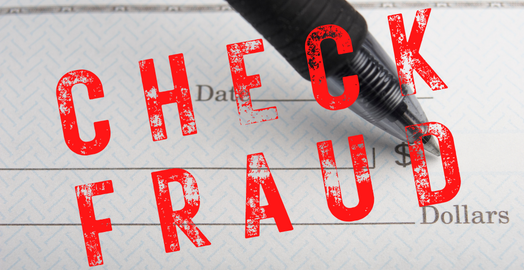Techniques for Charitable Giving

We have found through the years that many of our clients have charitable intentions. While noble at heart, your charitable contributions can also provide some potentially significant financial rewards to you and/or your heirs as well as fulfilling your philanthropic goals.
While many people think of the immediate solution of real-time donations of cash and supplies to charities as their method of making contributions, this only illustrates one method to help to support your favorite causes. In this post, we’re going to highlight a few alternative methods of planned giving techniques encompassing the simple to the sophisticated.
- Cash
When you have a desire to provide immediate support to your chosen charity, an outright gift of cash is often the first charitable gifting technique that springs to mind. You will receive an immediate charitable income tax deduction equal to the amount that you have chosen to gift, subject to the annual deduction limit. Estate tax law also allows for gifted amounts to be removed from your estate for estate tax purposes. Making a lifetime gift of cash and/or other assets allows you to witness your charitable gift being used for the purposes that you intend during your lifetime, as well as to potentially be recognized for your contributions by the charity that you have selected.
- Securities
Gifting securities such as stocks, bonds and mutual funds is often an attractive alternative to cash for current donations, especially if you have highly appreciated positions as it can allow for some tax savings on top of your charitable tax deduction. For example, through your charitable gift of a highly appreciated security, you can avoid paying the capital gains tax that would be due if you had liquidated the position. Additionally, the charity does not incur taxes when it sells the position, as a tax-exempt organization. To achieve this tax-free transaction, it is important to remember that the position must be transferred directly to the charity rather than liquidated.
- Life Insurance
Life insurance can provide a means to multiply your dollar in order to provide a larger gift to your favorite charity at the time of your passing than would be possible for you otherwise. To accomplish this, simply name your chosen charitable organization as the full or partial beneficiary of your life insurance proceeds. You may also note that policy proceeds that are received by the charity are not included in your estate for estate tax purposes. You can also transfer the ownership of the policy to the charity during your lifetime. The benefit here is that you will receive an income tax deduction for both the donation and for any premiums that you pay on the policy.
- Real Estate
For many, real estate makes up a very large and important part of our wealth. For this reason, it is sometimes an attractive asset to accomplish your charitable giving. There are, however, some very important considerations to take into account when you are thinking of making a gift of real estate. As real estate brings with it some unique challenges, it is important to first consult with the charity regarding their capacity to accept your generous gift. Secondly, while the concept of gifting your home may appeal to you, you also may want to continue to live in it. No worries. You can still fulfill your gifting goals by entering into a life estate agreement with your chosen charitable organization. Such an agreement will allow you to continue to live in your home for as long as you choose while the remaining interest is transferred to the charity. You remain responsible for the upkeep, maintenance, and taxes, however. What’s more, you will be entitled to a charitable income tax deduction equal to the remainder interest that was transferred to the charity.
- Retirement Assets
Making charitable gifts from retirement assets can provide several opportunities for significant tax savings. First, during your lifetime, withdrawals payable to yourself from most retirement accounts are taxed at ordinary income tax rates. Making taxable withdrawals from these accounts will not only incur income taxes but can potentially increase your income tax bracket. What’s more, retirees ages 72 and over are required to withdraw funds from their retirement accounts whether they need the money for income or not. By withdrawing funds from your retirement account payable directly to the charity of your choice, the funds never incur the income taxes that you would owe on them…therefore your taxable income does not increase nor does your bill to Uncle Sam.
After your passing, your heirs may find that they owe both estate taxes as well as income taxes. To avoid this burden to your heirs, you could consider making a charitable gift of your retirement assets. Amounts received by your charity of choice are not subjected to income tax, saving money for your estate, and providing a legacy for you by helping one of your favorite causes to work toward their mission.
- Estate Plan
Another posthumous option for leaving a charitable legacy for yourself is to name a charity as a beneficiary in your will or trust. This can be accomplished by providing either a specific dollar amount, asset, or fractional share of remaining assets. However, bear in mind, that it is important to note how you would like your gift to be utilized such as to fund a specific program or in the event that the charity merges or dissolves.
- Charitable Remainder Trust
A charitable remainder trust is a planned giving tool that allows you to make a substantial gift to your favorite charity while also drawing an income stream during your lifetime. Simplified, you establish an irrevocable trust from which you (or other designated beneficiary) receive annual payments during life or term of years. At the end of the designated term, the remaining trust assets will revert to the charity that you have specified. Using a charitable remainder trust entitles you to a charitable deduction equivalent to the value of the charity’s interest, based on current IRS tables. Charitable remainder trusts are excellent vehicles for transferring highly appreciated security positions as they are exempt from taxes. As the charity becomes the ultimate beneficiary of the account, capital gains will not be owed upon the sale of appreciated stock held by the trust.
- Charitable Lead Trust
Accomplishing much the same thing as a charitable remainder trust, a charitable lead trust works in the reverse order. In this case, the charity will receive payments for a set number of years at the end of which a designated beneficiary or beneficiaries will receive the trust assets.
- Donor Advised Fund.
Increasingly popular as a tool for charitable giving, is the donor advised fund. In a donor advised fund, an irrevocable gift is made to a fund or account at a sponsoring organization (such as a community foundation) in your name over which you or your family maintains advisory rights when it comes to investments and distributions. Your donation entitles you to an immediate tax benefit even though your funds may be held by the sponsoring organization for future use. You also avoid capital gains tax on any appreciated positions that are transferred into the fund. The downside is that you give up some control. While you can make recommendations as to the charities and grants supported, the sponsoring organization has the ultimate authority. However, they are also responsible for all administration and tax filings.
- Private Foundation
While attractive, the most complicated of all charitable gifting strategies is the private foundation. According to IRS tax code, to qualify for non-profit status, a private foundation must be established for religious, charitable, scientific, literary, or educational purposes and have a primary activity of making grants to other non-profit organizations. Forming a private foundation provides you with an immediate tax deduction for donated funds, though grants will not be made until a future date. Private foundations are often created by families as a means of creating continued stewardship in future generations. Be aware, however, that there are many additional tax rules that apply when forming a private foundation, but they also provide you and your heirs the greatest control over your philanthropic legacy.
At Sound Wealth Management, we have experience in working with donors and non-profits, alike. We can help to provide guidance as to what giving scenario may be the right fit for your current financial needs. Likewise, we can help to ethically manage foundation dollars that are set aside for your charitable intentions.
For a review of your unique situation, please reach out to our advisory team at 941.932.4822 or schedule your no-obligation consultation online at www.soundwealth.net.
Sound Wealth Management and LPL Financial do not provide legal advice or services. Please consult your legal advisor regarding your specific situation.










